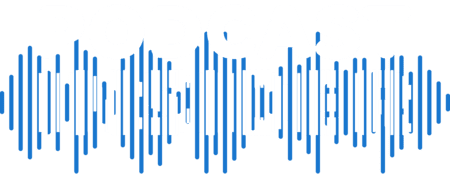RSS feeds aren’t exactly user friendly to all, so we wanted to simplify them a bit so that everyone can understand. We explain not only what a podcast feed is but the importance of having one.
What is a podcast RSS feed anyway?
RSS stands for “Rich Site Syndication” or “Really Simple Syndication”. In short, according to Wikipedia, RSS “is a type of web feed which allows users to access updates to online content in a standardized, computer-readable format.” In human language, that means you and your audience can use an RSS feed to consume your content someplace other than your website. Remember blog aggregators/readers? That’s how they work(ed). And, if you have a podcast, the podcast RSS feed is how platforms like Apple Podcasts, Google Podcast, Spotify, and others get your podcast info: they are more like an old-school phonebook, in that they simply list your information, but your podcast is actually served from wherever you host your media files. Your podcast RSS feed tells them things like your show name, the podcast episode title, the duration, etc. By the way, if you’re looking for an incredibly flexible, fast, stable place to host your podcast media files, be sure to check out our Podcast Hosting plans. Or, if you’re wondering how to get your podcast on Apple Podcasts, check out our step by step guide.
Why you need a podcast RSS feed
Put yourself in your listener’s shoes… or eyes & ears… for a minute. When you post anything to your website, your RSS feed defaults to listing a certain number of your most recent items. For example, WordPress defaults to listing the 10 most recent posts. The thing is, podcast readers will ignore anything in the default RSS feed that isn’t a podcast. So, if you’re publishing a handful of blog posts per month as well as a podcast per week, your default feed will only serve up those four podcasts. Your listeners are missing out.
BUT! If you have a podcast-only RSS feed as Blubrry users do, your listeners will have access to more of your awesomeness because the feed won’t be filled up with blog post content. Just the podcasts. You should have a podcast-only RSS feed.
Three ways to create a podcast RSS feed
Something to seriously consider as you set out on your epic podcasting journey: do you want to own and control your podcast RSS feed? The answer, if you truly care about your own story, is most likely yes. In which case, read on.
- The PowerPress WordPress plugin. It’s free. It’s super simple. It’s one of the most trusted ways to share your story with the world. The PowerPress WordPress plugin makes creating your podcast RSS feed ridiculously easy. That’s why there are tens of thousands of active installs, all over the world. We began developing the PowerPress WordPress plugin way back in 2008 because we wanted an easier way to create a podcast RSS feeds for our own podcasts. There is even a step-by-step guide on how to create your podcast RSS feed over at Blubrry.com.
- If you don’t have a WordPress site we provide one to every customer for free and it has PowerPress included. There certainly are a plethora of other options, but none are as simple to use or widely adopted and it’s integrated into the free WordPress site for those that do not have one.
- There is no three.
Ok. Those are the basics of what a podcast RSS feed is, why you might want one, and how to set up your very own podcast RSS feed. Be sure to check back often for more podcast RSS tips and tricks. And, as always, if you’re a Blubrry customer and you have any questions at all, give us a call. We have real, live humans ready, willing and able to help you build your podcast– including technical support in setting up a podcast RSS feed.
We should also mention that sometimes our corporate customers or podcasters experimenting in the space do not want to go the WordPress route. That’s really ok as we have a solution for you where you can publish directly on Blubrry.com as well and we will provide you an RSS feed from there. We always want to suggest the best solutions first, as we truly believe you should build your brand on your .com this results in the best SEO for your show.






